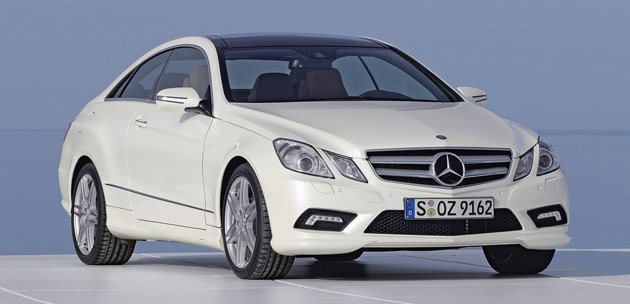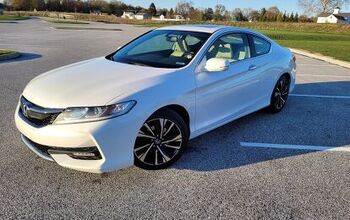TrueDelta's Car Reliability Survey: Good and Not-So-Good Germans
If German cars had a stellar reputation for reliability, Lexus would not be where it is today. TrueDelta’s latest Car Reliability Survey results, based on owner experiences through the end of March 2010, provide some evidence that a corner has been turned, but other evidence that work remains to be done.
Two years ago the current Mercedes C-Class had a relatively trouble-free launch, and in the latest results the 2008 is better than average. Nearly three-quarters of owners haven’t had a single repair in the past year.
The redesigned-for-2010 Mercedes E-Class appears poised to go down the same path. TrueDelta’s first reliability stat for the car, 56 repair trips per 100 cars per year, is very close to the average for all 2010 cars. For an all-new car with above-average complexity this is quite good. It’s also far better than the record compiled by the make’s SUVs.
Initial stats for the new MkVI Volkswagen Golf, GTI, and Jetta SportWagen are mixed. Gas-powered 2010s barely managed an “about average” score (74, lower is better) while the diesel-powered TDIs, plagued by faulty O2 sensors, scored considerably worse than the average (143). Both scores are considerably worse than those for the 2008 and 2009 model year cars.
TrueDelta also has its first stats for the 2010 Ford Taurus. With a reported repair frequency of 73 repair trips per 100 cars per year, the redesigned sedan has, like the gas MkVI VWs, barely managed an “about average” score. The related Ford Flex and Lincoln MKS had similar scores a year ago, and have since improved. The second model year of the Flex scores a “better than average” 25.
In February TrueDelta reported a “worse than average” initial reliability statistic for the new 2010 Chevrolet Equinox and GMC Terrain. Though only three months have passed, this score has improved dramatically from 94 to an “about average” 48. This suggests that GM quickly identified early glitches and rapidly implemented fixes for them.
Will the new VWs improve like the Equinox and Terrain have? With prompt quarterly updates, TrueDelta’s Car Reliability Survey will continue to track these and hundreds of other cars well ahead of other sources. Full results: Car Reliability Survey results
Participants in the survey receive full access to the results for free. The more car owners participate, the better the information TrueDelta can provide.
Michael Karesh lives in West Bloomfield, Michigan, with his wife and three children. In 2003 he received a Ph.D. from the University of Chicago. While in Chicago he worked at the National Opinion Research Center, a leader in the field of survey research. For his doctoral thesis, he spent a year-and-a-half inside an automaker studying how and how well it understood consumers when developing new products. While pursuing the degree he taught consumer behavior and product development at Oakland University. Since 1999, he has contributed auto reviews to Epinions, where he is currently one of two people in charge of the autos section. Since earning the degree he has continued to care for his children (school, gymnastics, tae-kwan-do...) and write reviews for Epinions and, more recently, The Truth About Cars while developing TrueDelta, a vehicle reliability and price comparison site.
More by Michael Karesh
Latest Car Reviews
Read moreLatest Product Reviews
Read moreRecent Comments
- Corey Lewis It's not competitive against others in the class, as my review discussed. https://www.thetruthaboutcars.com/cars/chevrolet/rental-review-the-2023-chevrolet-malibu-last-domestic-midsize-standing-44502760
- Turbo Is Black Magic My wife had one of these back in 06, did a ton of work to it… supercharger, full exhaust, full suspension.. it was a blast to drive even though it was still hilariously slow. Great for drive in nights, open the hatch fold the seats flat and just relax.Also this thing is a great example of how far we have come in crash safety even since just 2005… go look at these old crash tests now and I cringe at what a modern electric tank would do to this thing.
- MaintenanceCosts Whenever the topic of the xB comes up…Me: "The style is fun. The combination of the box shape and the aggressive detailing is very JDM."Wife: "Those are ghetto."Me: "They're smaller than a Corolla outside and have the space of a RAV4 inside."Wife: "Those are ghetto."Me: "They're kind of fun to drive with a stick."Wife: "Those are ghetto."It's one of a few cars (including its fellow box, the Ford Flex) on which we will just never see eye to eye.
- Oberkanone The alternative is a more expensive SUV. Yes, it will be missed.
- Ajla I did like this one.


































Comments
Join the conversation
It would be helpful, Michael, if you provided standard errors or confidence limits for your reported statistics. The small sample sizes require this.
I notice Audi is missing from the article as well as all the comments. Any ideas on how the A4 is doing compared to the Merc and the BMW?